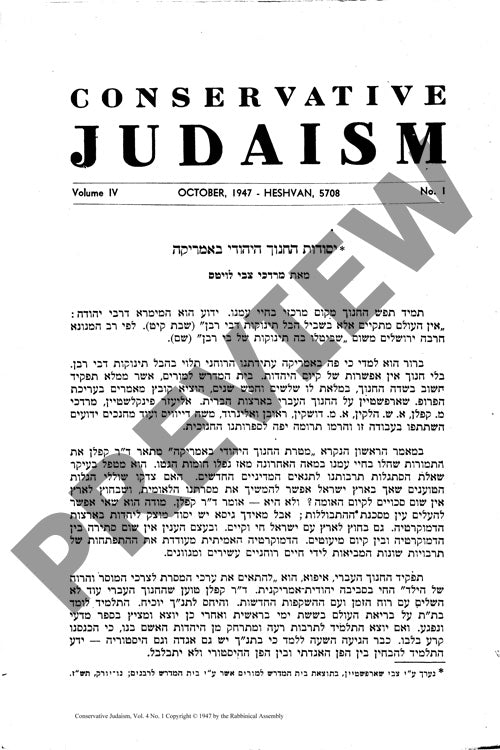Yesodot Ha Hinukh Ha Yehudi Bamerikah
Couldn't load pickup availability
Jewish education in post-WWII America stood at a critical crossroads, as revealed in a landmark 1947 collection of essays marking the Teachers Institute's thirty-fifth anniversary. Leading Jewish educators including Mordecai Kaplan and Eliezer Finkelstein confronted an urgent question: How could Jewish education adapt to American democratic society while preserving traditional values? Through analysis of various educational approaches, from biblical instruction to Hebrew language pedagogy, significant systemic deficiencies emerged: rabbis lacked proper educational training, institutions provided insufficient support, and existing practices proved inadequate for maintaining Jewish identity in the post-ghetto era. The contributors argued for revolutionary reform integrating traditional values with modern pedagogical methods, particularly emphasizing historical-national biblical instruction and Israel-centered curriculum design. Success would require fundamental structural changes: extending education beyond bar mitzvah, enhancing teacher preparation, securing broader community financial support, and garnering commitment from national Jewish organizations. Only such comprehensive reform could ensure Jewish educational survival and prevent assimilation in American society. Based on examination of the Sharfstein-edited volume, these insights remain relevant to contemporary challenges in American Jewish education.

More Information
-
Physical Description
-
Publication Information
Published 1947
ISBN
-
Publication Credits
Mordekhai Levitas

